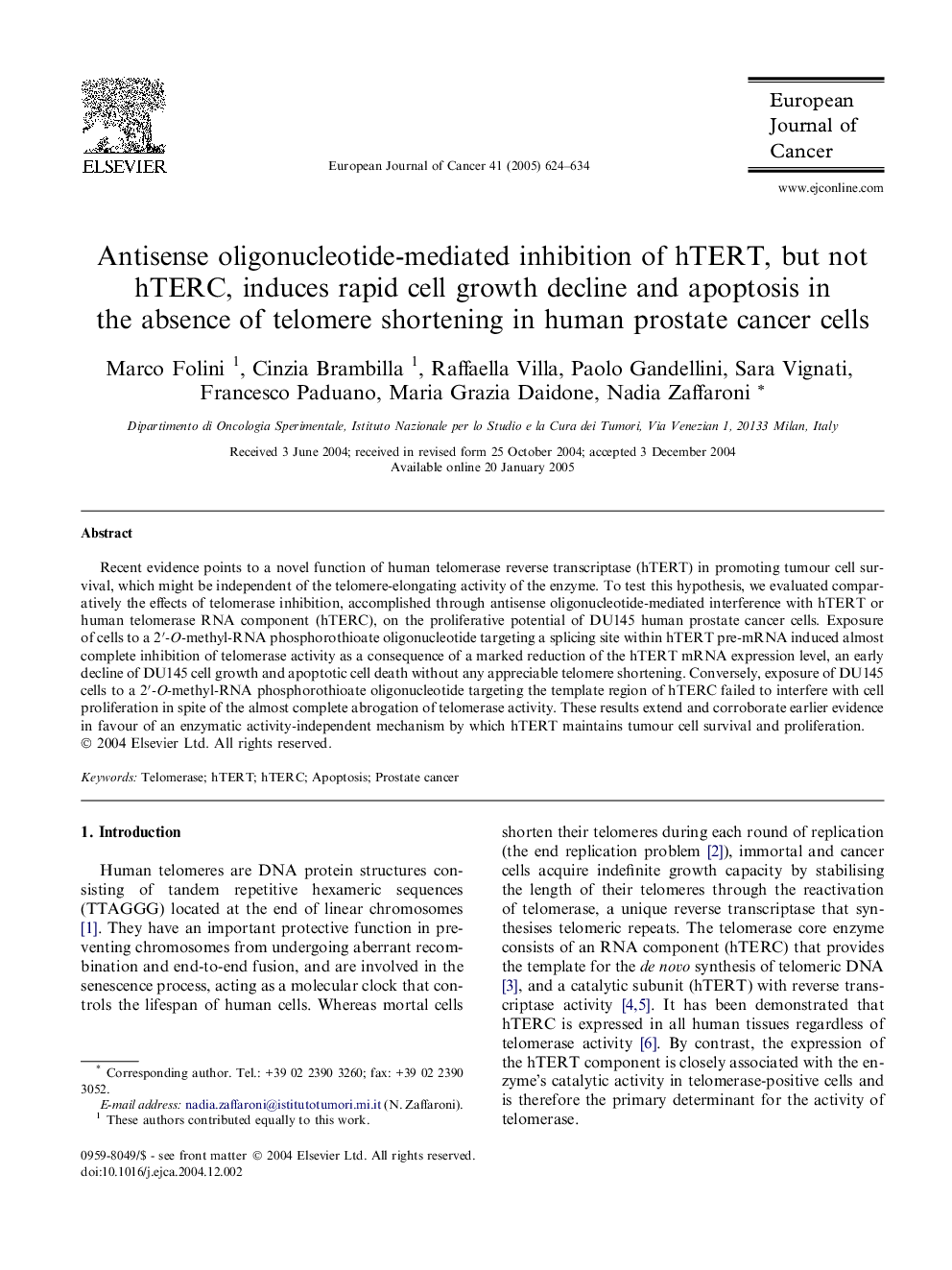| Article ID | Journal | Published Year | Pages | File Type |
|---|---|---|---|---|
| 9905876 | European Journal of Cancer | 2005 | 11 Pages |
Abstract
Recent evidence points to a novel function of human telomerase reverse transcriptase (hTERT) in promoting tumour cell survival, which might be independent of the telomere-elongating activity of the enzyme. To test this hypothesis, we evaluated comparatively the effects of telomerase inhibition, accomplished through antisense oligonucleotide-mediated interference with hTERT or human telomerase RNA component (hTERC), on the proliferative potential of DU145 human prostate cancer cells. Exposure of cells to a 2â²-O-methyl-RNA phosphorothioate oligonucleotide targeting a splicing site within hTERT pre-mRNA induced almost complete inhibition of telomerase activity as a consequence of a marked reduction of the hTERT mRNA expression level, an early decline of DU145 cell growth and apoptotic cell death without any appreciable telomere shortening. Conversely, exposure of DU145 cells to a 2â²-O-methyl-RNA phosphorothioate oligonucleotide targeting the template region of hTERC failed to interfere with cell proliferation in spite of the almost complete abrogation of telomerase activity. These results extend and corroborate earlier evidence in favour of an enzymatic activity-independent mechanism by which hTERT maintains tumour cell survival and proliferation.
Related Topics
Life Sciences
Biochemistry, Genetics and Molecular Biology
Cancer Research
Authors
Marco Folini, Cinzia Brambilla, Raffaella Villa, Paolo Gandellini, Sara Vignati, Francesco Paduano, Maria Grazia Daidone, Nadia Zaffaroni,
